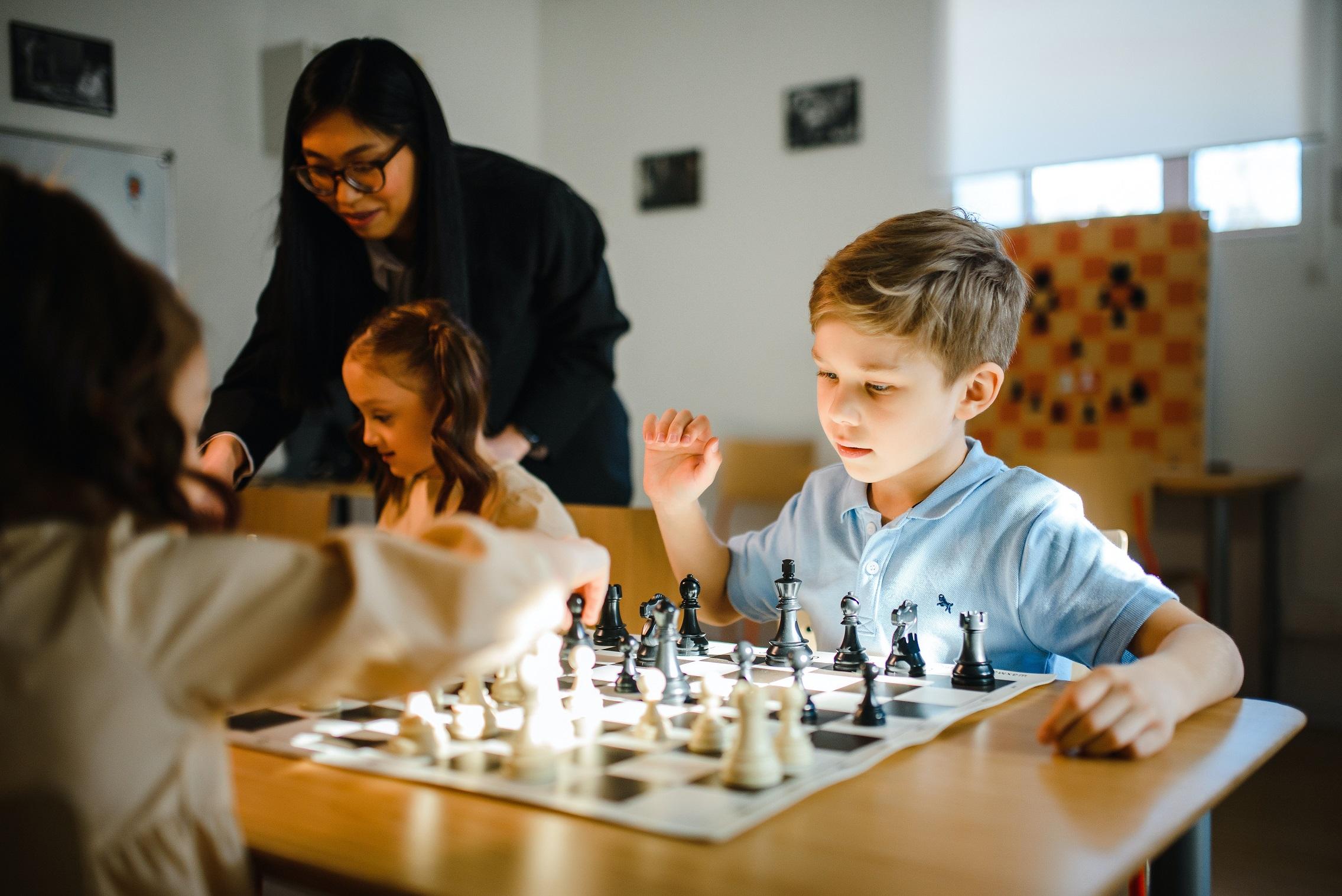


Top 5 Benefits for Children of Playing Chess
5 September 2023
As parents, you’re always looking for a fun - but educational - activity for your kids to enjoy. However you’ll often find yourselves coming across the obvious choices again and again - rugby, football, netball and dancing among many others. Chess is a far cry from being an obvious activity.
Although this strategy game may not be all that new, it is often forgotten when there are so many other options available. Chess is great for your children since it teaches them more than just how to beat their opponent. Some of the life lessons they can learn from playing chess can be very useful and translate to other areas of life.
Chess can be particularly useful if your child is not someone who enjoys playing sports and other physically challenging activities. After all, some kids love the mental side of things and might love to play chess instead of kicking around a football. Let’s discuss the benefits that your child can get from playing chess a little further.
Less Screen Time
Parents have a hard time trying to get their children off their gadgets. Since children nowadays get the majority of their entertainment from their devices, it’s important for them to engage in an activity which doesn’t involve a screen! What better way to get traditional than to enjoy a classic game of chess? While chess can be played digitally today, it is still best played on a good old chess board. This takes children away from their gadgets while still having a great time.
Improved Concentration and Memory
One problem that many parents have with their children is their inability to focus and memorise things. Many times, children do not have the attention span to sit and listen to lessons or lectures. This is why activities like chess can be useful as kids are trained to focus and hone their memorisation skills. Chess starts with openings, of which many have to be memorised to win. If your child decides to take chess a little further and memorises these openings, they’ll improve their memory a lot - and still have fun at the same time!
Develop Problem Solving Skills
There aren’t many activities out there that teach children how to solve problems like chess. In chess, a player is trapped and pressured by their opponent. While all this is going on, the player must solve their way out of whatever pickle they find themselves in.
The result? Your child builds great problem solving skills and doesn’t let small issues get to them - which is a very valuable life lesson!
Ability to Read the Opponent
A chess player must learn how to make smart moves - and at the same time - anticipate their opponent’s moves. The ability to read the opponent is vital in chess matches. Children who play a lot of chess are better at making sense of things when they encounter adversity, bullies, enemies, unfairness, and even discrimination. Their ability to read what the opponent is doing, and learning to thrive and counter, is vital both in chess and in life.
Socialise More
Chess is a one-on-one game. One of the best things about this game is that a child who plays chess will want to play with different opponents. Playing with the same opponent over and over again gets boring! Also, a child will want to test his or her skills against opponents that are unfamiliar. This means that your child will want to socialise and get to know more people as they play more and more chess. Without even realising it, they'll be engaging with other people through playing!
